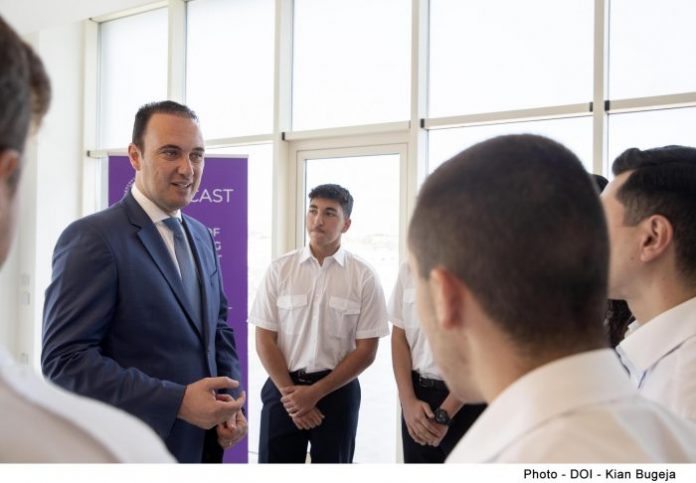The Maltese College of Arts, Science and Technology (MCAST) has officially inaugurated the Center for Maritime Studies, within the College’s Institute of Engineering and Transport. The official opening took place during a visit by the Minister for Education, Sport, Youth, Research and Innovation Clifton Grima to the new centre.
Minister Clifton Grima claimed that MCAST is offering not only a higher level of study, but also advanced facilities that lead to providing industry-relevant learning opportunities in various sectors, including the maritime industry. The minister also noted the high level of the students, so much so that the assessment marks of the Chief Mate of this academic year were exceptionally high, with results of 100%.
Through experienced and qualified lecturers and mentors in the sector, the center offers a wide range of maritime programs at different qualification levels that support both local and international demands in the maritime industry.
The Principal and Chief Executive of MCAST Professor Joachim James Calleja said, “This center offers internationally recognized qualifications for students to work on ships and yachts. Marine Engineering students complete their studies with qualifications to start careers in shipyards as engineers, but can continue to progress in their studies to the level of surveyors and inspectors. The investment made in this center is part of the college’s strategy to ensure that our students have access to practical training facilities that prepare them for the world of work.”
The new facilities include three new simulators: Bridge Control, Global Maritime Distress and Radio Communication Safety System, and Electronic Charts Display Information System. It is also equipped with all the necessary tools and equipment, including first aid and equipment for emergency drills and a lifeboat.
Director of the Institute, Engineer Stephen Sammut, spoke about the center’s courses which include full-time and part-time courses. One of the full-time courses is an introductory course leading to a Diploma in Deck Operations (MQF Level 3) with a study period of one academic year. Successful students can progress to a higher level leading to an Advanced Diploma in Deck Operations (MQF Level 4) and gradually rank as Officer In Charge of Navigational Watch.
The Maritime Center also offers Marine Engineering courses. One can start with an Advanced Diploma in Marine Engineering, which can lead to a BSc (Hons) in Marine Engineering. Each course lasts three years. There are also workshops that are available for students to carry out practical exercises and be able to work on their thesis.
Around 60 full-time students are following courses at the centre, including Advanced Diploma in Deck Operations/Officer In Charge of Navigational Watch, Chief Mate and Master Mariner. A further 40 are enrolled in full-time courses in Marine Engineering, including the Advanced Diploma (MQF 4) and the BSc (Hons) (MQF 6).
Several officials from private entities that are partners with MCAST in this educational sector were also invited for this occasion.










